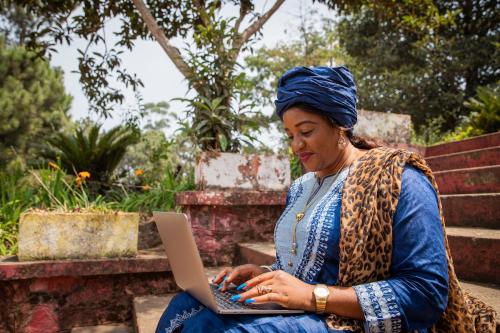

8:00 am EDT - 9:30 am EDT
Past Event
Session II
Domestic risks to Africa’s growth:
Navigating local content regulation and taxation
Editor’s note: Improved economic and political governance, together with a favorable global external environment, have set the foundation for Africa’s recent and much-heralded economic growth story. However, these features, although they point to opportunities, do not alone provide a sufficient basis for the type of sustainable and comprehensive development the region badly need. In too many cases, governments and businesses working in Africa encounter daunting economic, political, and social risks that reduce their ability to make long-term investment decisions and implement development policies. The Brookings Africa Growth Initiative (AGI) addresses this need through a private roundtable series that convenes high-level professionals from both the public and private sector for regular working group sessions to identify, manage, and mitigate the biggest risks to economic development in Africa. In addition to risks, the sessions will also seek to identify key trends in the continent in order to come up with practical and implementable policy recommendations to leverage existing and potential opportunities in the continent.
The World Bank’s annual Doing Business Report continues to cite sub-Saharan Africa’s progress as impressive, with the region accounting for almost one-third of the regulatory reforms making it easier to do business. Countries like Rwanda, Senegal, and Benin have become often-quoted examples when it comes to reforming their regulatory processes. Then again, six of the bottom 10 countries are in sub-Saharan Africa. The region ranks low in government effectiveness and continues to struggle with the enforcement of the rule of law. Clearly, many of the regions’ impediments to doing business are sometimes created or exacerbated by African governments. Instead of being a facilitator to trade and business, then, government ends up being a bottleneck.
Two specific aspects—local content regulation and taxation—continue to be hindrances to both entrepreneurs and foreign investors. African governments, with good reason, are increasingly seeking to build local capacity and ensure a transfer of skills and technology from global firms to local firms; however, overregulation sometimes places undue burden on foreign companies, especially when domestic capacity is limited. African governments have also embarked, again with good reason, on an agenda to increase domestic resource mobilization and reduce illicit financial flows in order to meet their sustainable development goals. But such efforts can create complexities in legal interpretation and enforcement, and poorly thought out tax policies close businesses or chase them away.
In this roundtable, participants discussed African policymakers’ goals regarding local content regulation and taxation, the related specific hurdles to investment, and how domestic and outside actors, such as businesses, the United States, and the multilaterals, best inform policies that work for all.
The following takeaway messages emerged from the discussion:
For a more detailed discussion of the conversation, see the related blog.

Chinasa T. Okolo
March 15, 2024

Cameron F. Kerry
March 11, 2024

Leora Klapper
March 7, 2024